 Your new post is loading...
 Your new post is loading...
It’s a tricky time to be a food marketer. Consumers are scrutinizing more than ever to what goes into the foods they buy. And what constitutes “healthy” to consumers is in flux. The FDA recently announced that it will be calling out “added sugar” on nutrition labels in the future. It is estimated that 68% of processed foods contain added sugars. “It’s going to really surprise people who go to organic and whole foods stores, when they find that all this natural food they’ve been buying is full of added sugar,” said Barry Popkin, UNC professor and author of a study called, “Sweetening of the Global Diet. ”I heard that there are 61 different names for added sugar listed on food labels, which can make it hard for consumers to evaluate the amount of sugar in products they buy. The sneakiest trick to to have multiple sources of added sugar in one product, so that no one type of sugar shows up first on the ingredients panel....
t every marketing effort can be a success, that’s why there’s testing and optimization programs – to find what works and build on those wins and learn from those losses. And usually when things don’t totally go as planned, the result is more, "meh," than "time to break the panic glass."
But then there are situations marketers never want to find themselves in, whether it’s a social media meltdown of their own creation or worse, a full-blown crisis.
Here are cautionary tales from 2015 where marketing definitely went wrong... in a major way
When it comes to turkey, some things are just too good not to share. Witness the lame duck or should I say sales turkey and marketing mashup I received on the evening before Thanksgiving.
The individual’s last name, email, direct phone and LinkedIn link are removed but the lessons about this Thanksgiving Eve roast are valuable for junior sales associates everywhere, though according to the LinkedIn profile of the chef of this sales flop, he has an MBA and more than eight years sales experience. Lord!
First, the offending turkey of an email from Eduardo at Marketo…
Before the “selfie” term was coined, many people were already figuring out ways to take photos of themselves...
Before the “selfie” term was coined, many people were already figuring out ways to take photos of themselves, whether it be with digital cameras, smartphones, or even film cameras back in the day. Safe to say “selfies” aren’t exactly new per se.
However with the term having been officially coined, it seems that there is now a mental disorder associated with it as well.
According to the American Psychiatric Association, the act of taking a selfie can be considered a mental disorder. The disorder has been labeled selfitis and is defined as an obsessive compulsive desire to take photos of oneself and publish it onto social media, like Facebook, Instagram, Twitter, and so on..
These are the contenders for the worst website that appeared on Web Pages That Suck in 2013...I'm going to try something a bit different. Each entry will have a minimal explanation and a link to where it appeared as a Daily Sucker with the associated commentary and, of course, a link to the website....
Although social media has been around for a few years, plenty of businesses and entrepreneurs still get it wrong. When planning your social marketing strategy and being active on social channels, avoid these 5 common content mistakes....
Get ready for some “greenwashing”, folks. TheNational Confectioners Association — which counts among its members the makers of Snickers, Mars Bars, NesQuick and pretty much every other sugary treat you continue to enjoy (in secret) as a responsible adult — wants a bit of a makeover. More specifically, the organization plans to hire an unnamed PR firm to help it gently convince the American public to stop associating the word “sugar” with the word “obesity” as if one could somehow lead to the other. Come on! So these guys want to spend $2 million on a social/digital media campaign targeting those moms who think, for whatever crazy reason, that eating too much sugar could give their kids type two diabetes — which would then leave them considerably more likely to suffer from obesity and all related health problems later in life. I mean, where do they get these ridiculous ideas? Oh, right…
|
Harry Brignull, a user-experience consultant in Britain who helps websites and apps develop consumer-friendly features, has a professional bone to pick with sites that seem to maneuver people into signing up for services they might not actually want.
He even has a name for the exploitative techniques: “dark patterns.” To him, these are debased versions of the typical sign-up, sharing, shopping, checkout and download processes that are standard practice online.
“It’s a term for patterns that are manipulative, that you are doing on purpose to get one over on users,” Mr. Brignull said when I recently called him.
A few years ago, Mr. Brignull started a site called darkpatterns.org to call attention to the practices....
Transparency is important to all elements of the food movement, but it is particularly relevant in the realm of chocolate, Carla Martin, lecturer on African and African American Studies at Harvard University, and founder and executive director of the Fine Cacao and Chocolate Institute, told Quartz. She cites examples like Cadbury’s ignoring the use of slave labor in its supply chain in the early 1900s, and early industrial chocolate makers who were found to be bulking up chocolate with corn sugar.
“It’s something that people involved in the craft chocolate movement are very concerned with,” she says. “There are ideals about this kind of openness in one’s business practices and it comes from very real concerns about fraudulent practices in the food industry.” Similar concerns continue to the present day: Most of the world’s chocolate comes from West Africa, where practices like child labor and rainforest clearing are rampant.
It’s easy to attribute all of the negative comments to resentment from other chocolate makers—Mast Brothers gets incredible press from a range of publications all over the world. “There is a certain kind of jealousy,” Bernardini told Quartz over email, “but more of an anger.” “But [chocolate makers] should also be angry with the media as it is the fault and responsibility of the media that Mast Brothers became so famous (with a mediocre and sometimes also bad quality). Only because they wore clothes like Amish people with long beards.”
Samsung may be learning a lesson this week that most of us observed by watching Mr. Smith a long time ago: What flies in Hollywood doesn’t having any relation to the real politick of Washington, D.C. And so it is that headlines are calling out both Samsung and Boston Red Sox slugger David Ortiz for “punking” the President with a moment reminiscent of Ellen DeGeneres’ selfie-fulfilling prophecy at the Oscars that did, indeed, set a record for the most retweets....
His ad campaigns on Facebook resulted in his Facebook fanbase becoming polluted with thousands of fake likes from bogus accounts.
... Recently, however, Brar has fallen out of love with Facebook. He discovered — as Business Insider reported recently — that his Facebook fanbase was becoming polluted with thousands of fake likes from bogus accounts. He can no longer tell the difference between his real fans and the fake ones. Many appear fake because the users have so few friends, are based in developing countries, or have generic profile pictures.
At one point, he had a budget of more than $600,000 for Facebook ad campaigns, he tells us. Now he believes those ads were a waste of time.
Facebook declined multiple requests for comment on this story....
Domino's and Bank of America show that having humans handling social media doesn't mean they'll act human.
Last week, Domino’s stepped in it on Facebook. A customer took to the brand’s Facebook page to compliment the chain, which then responded with a rote “Sorry for your bad experience” response. Digiday, along with others, covered the snafu, which appeared to point out the perils of relying on automated responses in social media.
And yet the error was actually a mistake made by a human, according to Domino’s. In much the same way as Bank of America screwed up last month by having a social media team sounding a lot like robots, a Domino’s employee mistook the compliment for a complaint. The employee then, it would appear, gave the default response for social media complaints. Domino’s, to its credit, tried to regain its footing by taking it in stride. The rub with brands in social media is that they’ll need humans, who are prone to make mistakes....
After the tragedy in Boston, one brand thought it would be a good idea to tie its scone recipes to the bombing. After every national tragedy, you can be sure that some clueless brand will try to exploit it. In today’s episode of “What the hell were they thinking,” the food website Epicurious sent out the following tweets to its 385,000 followers... Get your legs blown off by a terrorist? Try these scones! Lose a cherished friend? Maybe this bowl of breakfast energy can help! Okay, those tweets are beyond absurd. So Epicurious deleted them and tweeted this alleged mea culpa: First, let’s be clear: their earlier tweets didn’t “seem” offensive. They were offensive. The word “seem” shifts the burden of blame onto their readers, who the brand seems to think were overly sensitive. It stops short of fully acknowledging the obliviousness of their tweets....
When we hear the words “deceptive marketing”, we generally think of campaigns that promote the blatantly false or grossly exaggerated “benefits” of a product (i.e. the butt-sculpting superpower of Sketchers Shape Ups or the death-cheating health claims of POM juice). In cases like these, the offending parties are held accountable by the FTC for intentionally misleading consumers. The public doesn’t like being lied to, and we rely on governing bodies and uniform regulations to protect us. But what about the marketing we encounter every time we visit a grocery store? In our increasingly health-conscious society, more and more people are checking labels to make sure they are feeding their families the most nutritious, least harmful foods possible. But what many don’t realize is that labels reading “all natural” or “farm fresh” don’t necessarily mean what people think they mean; in fact, due to a lack of regulation, many such buzz words mean virtually nothing at all....
|



 Your new post is loading...
Your new post is loading...

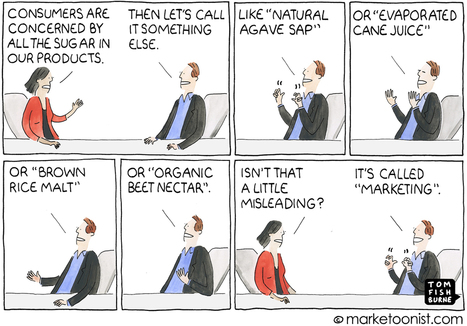

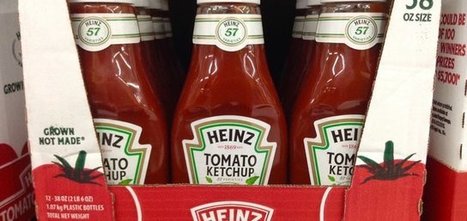

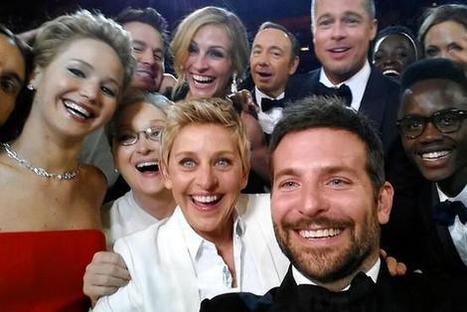






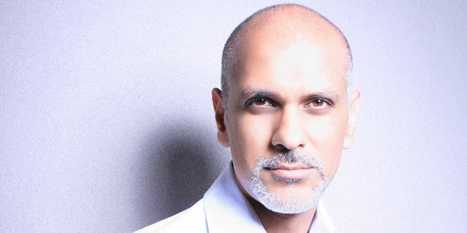

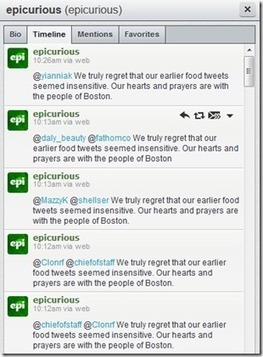






Is it "Health-washing" or is it marketing? Mostly, it's deceptive and dishonest.